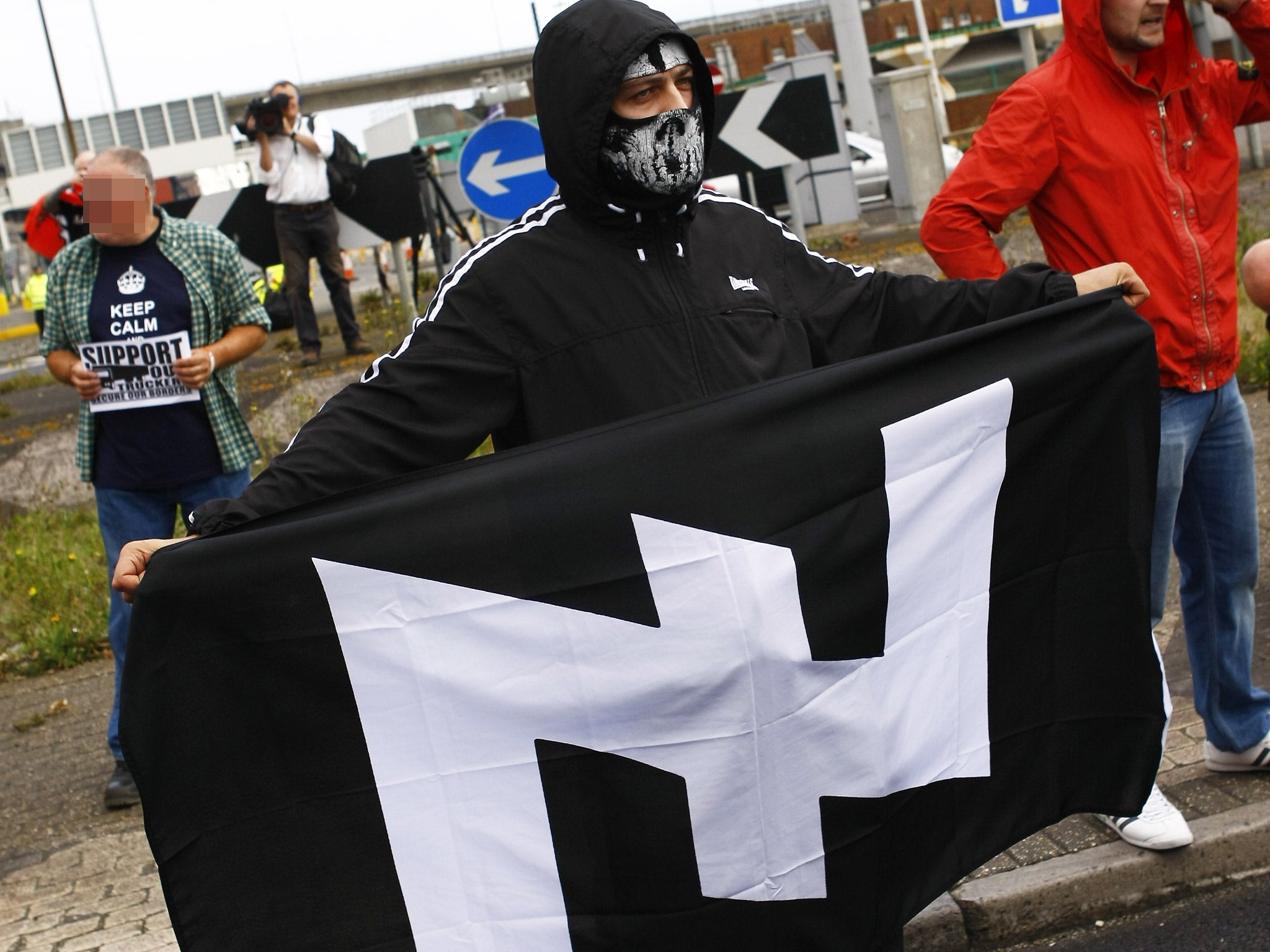Prevent isn't just about Islamist extremism – I've worked with a 10-year-old boy already immersed in Nazi culture
Our mentoring process has also made best friends of a white supremecist and the black former extremist who saved his life

As a Prevent coordinator, I am now often asked what we are doing with regard to the rise of the extreme right wing. The irony is that Prevent has been tackling these groups for many years.
As far back as 2008, one of the first cases I encountered was not a burgeoning al-Qaeda supporter but a 10-year-old boy who had emblazoned a T-shirt with drawings of dead bodies, machine guns, pools of blood and Nazi swastikas. A family member, a staunch supporter of Combat 18, had immersed him in neo-Nazism from an early age.
Much extreme right-wing activity is online, where the internet can become an echo chamber of hate-filled rhetoric. Persistent media stories about Prevent place undue focus on Islamist terrorist attacks in Europe and beyond, violent propaganda from Isis and a cadre of UK groups. That fuels anger online towards our Muslim communities. Whether the perpetrators harbor violent fantasies or are keyboard warriors venting their spleen, they are creating a discourse that is highly toxic and damaging.
Extreme right wing groups in this country are notoriously fractured and disorganised. There is not the same industrial-scale, targeted propaganda that emanates from Isis and their ilk. Nor are there charismatic leaders at the top of the movement explicitly calling for acts of murder.
So while the threat of a terror attack from the right wing is not on the scale of the mass casualty spectaculars promised by al-Qaeda and Isis, it nevertheless remains palpable with regard to lone actor attacks, such as the tragic murders of Mohammed Saleem and MP Jo Cox.
So how does Prevent deal with someone whose hatred manifests so intensely they may pose a risk to others?
Those with far right views are not criminals, but without support they are at risk of crossing the line into criminality. If that happens, we not only have criminals committing acts of violence, we have victims of that violence. We want to prevent both.
In some cases a mentor may be used. Some of the most credible mentors are "formers". Who better to diffuse extremist views than someone who has trodden that path themselves, but since turned a corner?
While attachment to an extreme ideology is viewed by society as a problem, often that will not be the primary focus of our intervention. Support for extremists will come instead through traditional social care methods. It is always important to understand what has created that vulnerability, the ideological opening for extremism. This applies to all forms of extremism and underpins our approach in Prevent.
In the case of one former far right extremist, the vulnerability was triggered by a family bereavement. Desperate for someone to help him make sense of an unjust world, he sought solace with the only group who offered it: a neo-Nazi faction. They became his family and gave him what he desperately craved in life – a sense of belonging, a community, status and a purpose.
Rather than start with Nazism and work backwards (an approach that would be adversarial) the mentor we found was a person who could connect on the most human level and reach beyond the ideology to the man behind it.
To defy pre-existing prejudices a white supremacist was paired with a black mentor – an approach which has been replicated in a number of cases. Their sessions were filled with remorse, but also respect. For the first time this committed neo-Nazi could see past the colour of a man’s skin. To this day they are close friends.
For all the hyperbole that surrounds the Prevent strategy, the one fact that is missing from the debate is simply this: it works. It is the stories like this you don’t often get to hear; the lives that have been saved.
Will Baldet has worked within the Prevent strategy since 2008 and is currently the Prevent coordinator for Leicester, Leicestershire and Rutland
Join our commenting forum
Join thought-provoking conversations, follow other Independent readers and see their replies
0Comments